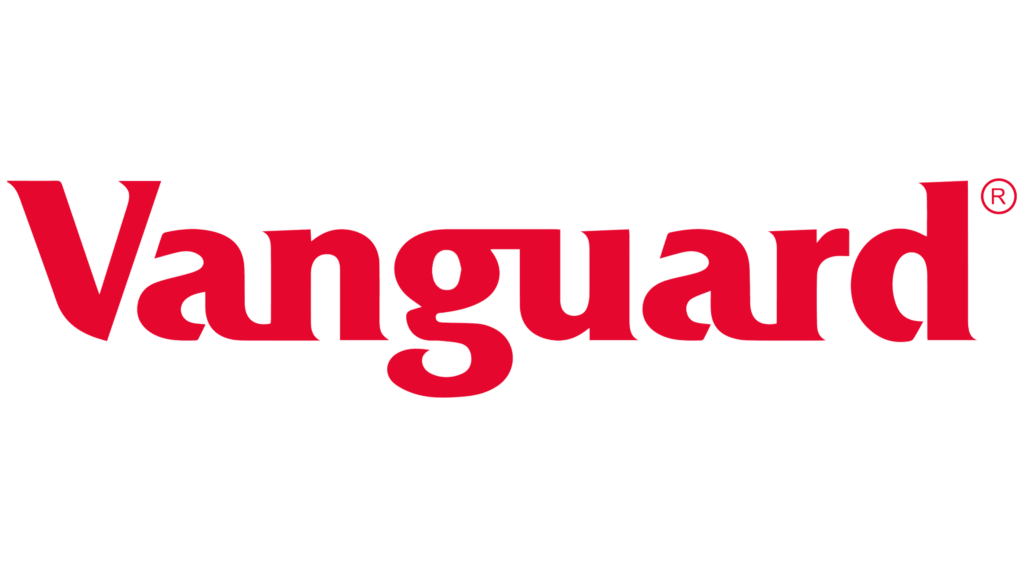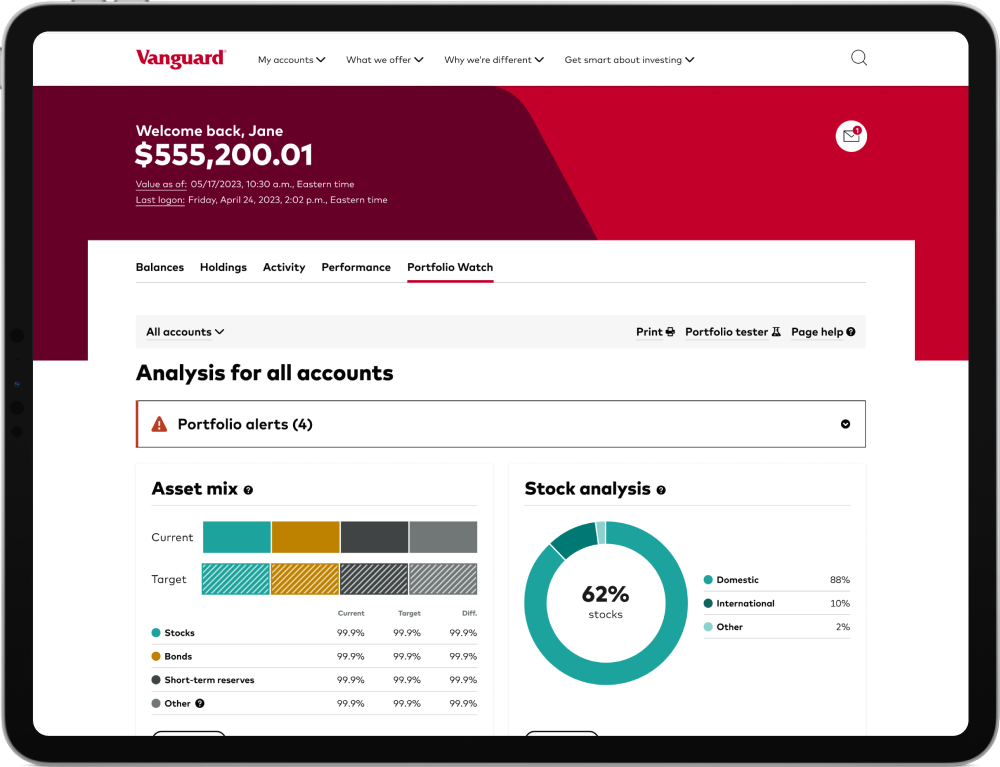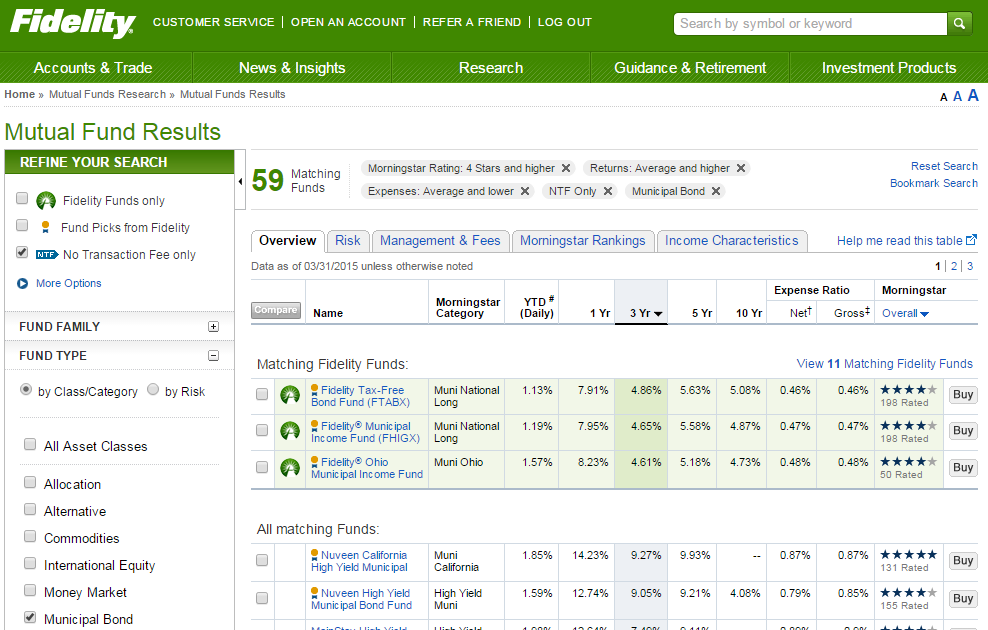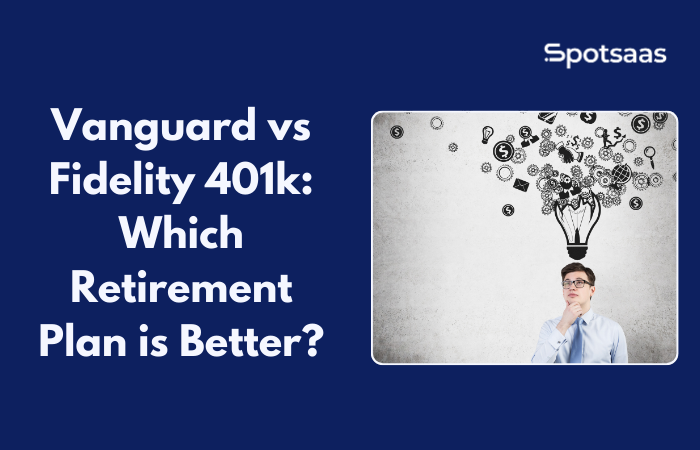Vanguard and Fidelity 401k are two of the most well-known providers of retirement savings plans, offering a range of investment options, low-cost funds, and financial tools. Choosing the right provider can significantly impact long-term retirement growth, making it essential to compare their features, fees, and performance.
Vanguard and Fidelity, both provide employer-sponsored 401k plans and individual retirement options, but they differ in investment philosophy, cost structure, and customer experience. Vanguard is best for its low-cost index funds and passive investment approach, while Fidelity offers a broader selection of actively managed funds and strong customer support.
This comparison of Vanguard and Fidelity 401k will show the key differences, that will help the individuals and employers determine which provider best fits their retirement goals. Understanding investment choices, fees, digital tools, and historical performance can make a significant difference in maximizing retirement savings.
Vanguard vs Fidelity 401k – Overview
Vanguard

Vanguard
- Annual Fee: $20
- Security Compliance: IRS Compliance, SOC 1
- Best For: Low-cost 401(k) provider for small businesses
Vanguard is one of the most trusted financial firms, known for its investor-first philosophy and leadership in low-cost index funds. The company offers 401k plans designed to help businesses provide high-quality retirement benefits while keeping costs minimal.
Employers benefit from Vanguard’s commitment to long-term investment growth, along with easy plan management tools that integrate with payroll systems.

Employees gain access to an extensive lineup of low-cost index funds, actively managed funds, and target-date funds retirement options. Vanguard’s reputation for cost efficiency and simple plan administration makes it a strong choice for businesses focused on providing employees with solid retirement savings opportunities.
Fidelity Investments

Fidelity Investments
- Setup Fee: $500
- Security Compliance: SOC 2, ISO 27001
- Best For: Large businesses with comprehensive retirement solutions
Fidelity Investments is one of the most well-established financial services firms, offering a full suite of retirement solutions, including 401k plans, IRAs, and pension plans.
Their 401k offerings cater to businesses of all sizes, from startups to large corporations. Employers benefit from a streamlined setup process, a dedicated customer support team, and advanced reporting tools that simplify plan management.

Employees gain access to a diverse range of investment options, allowing them to build portfolios that align with their risk tolerance and retirement goals. Fidelity’s long-standing reputation for strong financial performance and client-focused service makes it a preferred choice for businesses looking for a trusted retirement plan provider.
Investment Options
Vanguard vs Fidelity, both offer a variety of investment choices, but their approaches to fund management differ significantly. Understanding the differences can help investors decide which provider aligns better with their retirement goals.
Vanguard
Vanguard is known for its low-cost index funds, exchange-traded funds (ETFs), and mutual funds. It primarily follows a passive investment approach, focusing on funds that track major market indexes such as the S&P 500.
This strategy is designed to deliver long-term, stable growth with minimal fees. Vanguard funds appeal to investors who prefer a hands-off, long-term approach to retirement savings.
Fidelity
Fidelity provides a broader range of investment choices, including both actively and passively managed funds. It offers target-date funds, sector-specific funds, and a selection of actively managed mutual funds, giving investors more opportunities to tailor their portfolios.
Fidelity’s actively managed funds are designed for those who want professional fund managers making investment decisions to potentially outperform the market.
Which Provider Offers More Diversification Opportunities?
Vanguard vs Fidelity both offer strong diversification, but the best choice depends on investor preference. Vanguard is ideal for those who prefer a low-cost, passive investment approach.
Fidelity provides a mix of active and passive fund management with a wider selection. Investors seeking actively managed funds may find Fidelity more appealing.
Fees and Expense Ratios
Fees and expense ratios play a crucial role in determining the long-term growth of a 401k portfolio. Even small differences in fees can significantly impact retirement savings over time. Vanguard and Fidelity both offer low-cost investment options, but their fee structures vary.
Vanguard
Vanguard is known for its low expense ratios, particularly for its index funds and ETFs. The provider follows a low-cost investment philosophy, making it a great choice for cost-conscious investors.
However, some Vanguard mutual funds require a minimum investment, which may be a barrier for those with smaller account balances.
Fidelity
Fidelity offers competitive expense ratios and has eliminated many account fees for its 401k plans. Unlike Vanguard, Fidelity does not require minimum investments for most of its mutual funds, making it more accessible to a wider range of investors.
Fidelity also provides zero-expense ratio index funds, giving investors an opportunity to minimize costs even further.
Breakdown of Mutual Fund and ETF Costs
Both providers offer low-cost investment options, but the specifics vary by fund type.
- Index funds: Vanguard has some of the lowest expense ratios, but Fidelity competes with zero-expense ratio funds.
- Mutual funds: Vanguard’s actively managed mutual funds tend to have lower fees compared to many competitors, but Fidelity provides a wider selection with competitive pricing.
- ETFs: Vanguard vs Fidelity both offer cost-effective ETFs, though Vanguard’s ETF lineup is more extensive and focused on passive investing.
Investors looking for the lowest possible fees may prefer Vanguard for its consistent, low-cost structure, while those seeking flexible investment options with no account minimums may find Fidelity more appealing.
Employer-Sponsored 401k Plans
Vanguard vs Fidelity, both offer employer-sponsored 401k plans, but they cater to different types of businesses. Choosing the right provider depends on the company’s size, budget, and the level of administrative support required.
Vanguard
Vanguard is known for offering low-cost retirement plans, making it a great option for small and mid-sized businesses. Its 401k plans prioritize low expense ratios, which can help employers and employees save more over time.
Vanguard also provides a strong lineup of index funds and ETFs, making it ideal for companies that want simple, cost-effective investment options. However, its administrative services and plan customization options may be more limited compared to Fidelity.
Fidelity
Fidelity offers a more comprehensive suite of 401k plan options, making it well-suited for larger businesses with complex retirement plan needs. Employers can access integrated payroll solutions, a variety of investment options, and personalized financial wellness tools for employees.
Fidelity also provides dedicated plan support and enhanced reporting features, which can be beneficial for companies looking for hands-on administration.
Which Provider is Better for Employers Looking for a 401k Administrator?
Vanguard is a strong choice for small and mid-sized businesses that want a cost-efficient, simplified retirement plan. Fidelity is better suited for larger businesses that need more advanced plan features, integrated tools, and dedicated account management.
Employers should consider their company size, administrative needs, and investment preferences when selecting a provider.
Mobile App and Online Experience
A well-designed mobile app and online platform are essential for managing 401k investments efficiently. Vanguard vs Fidelity, both offer digital tools, but they cater to different types of investors based on usability and features.
Vanguard
Vanguard’s mobile app and online platform provide a simple and user-friendly experience designed for long-term investors. The interface allows users to check account balances, adjust contributions, and review fund performance.
However, the platform lacks advanced trading features and in-depth market research tools. It is best suited for investors who prefer a hands-off, long-term approach to retirement savings rather than active trading.
Fidelity
Fidelity offers a more advanced digital experience featuring real-time stock tracking, in-depth research tools, and interactive financial planning features. The app provides personalized insights, investment calculators, and seamless account management, making it an excellent choice for those who want detailed portfolio analysis and hands-on investing tools.
Fidelity’s mobile app is highly rated for its ease of use and extensive functionality.
Which Platform Provides a Better Digital Experience?
Fidelity has a more feature-rich and interactive platform, making it the better choice for investors who want real-time market updates, research tools, and a hands-on investment experience.
Vanguard’s platform is ideal for passive investors who prefer a simpler, long-term investment strategy without the need for extensive digital tools.
Investors who value advanced features and market tracking will likely find Fidelity’s platform more beneficial.
Evaluations and Gain
Vanguard vs Fidelity, both provide points of measurement regarding how effectively each provider has contributed to enhancing the growth of retirement savings for investors. There are good investment choices offered by both, but returns will depend on the selection of the fund, approach toward investing, and market conditions.
Comparison of Historical Performance
Vanguard vs. Fidelity offers competitive funds for strong long-term performance, but their investment styles differ. Vanguard primarily focuses on low-cost index funds, aiming to match market performance over time with minimal fees, making it ideal for passive investors.
In contrast, Fidelity provides a blend of both managed and passive funds where sporadically some have aspired to outperform the market.
Who offers a better long-term return?
Because Vanguard limited costs and has traditionally provided very honest market-matching returns, its index funds have proved to be favorable in this regard.
In contrast, it is assumed that Funds managed by Fidelity have a reason to occasionally outperform the market. Still, with their associated higher fees, their performance comes with much higher variability.
Low-cost, highly predictable investing generally attracts investors to Vanguard; higher-risk search for better returns often attracts investors to the Fidelity camp.
How does fund selection impact portfolio growth?
The type of fund, an index vs an actively managed one, plays an important role in portfolio growth. Vanguard solutions cater to passive buy-and-hold long-term investors desiring steady market-matching returns.
While, Fidelity brings general diversification with a maximum upside on one side and a chance of underperformance depending on market scenarios on the other.
Investors must factor risk tolerance and investing philosophy into the selection between these two providers.
Pros and Cons of Vanguard vs Fidelity
| Feature | Vanguard | Fidelity |
|---|---|---|
| Best For | Passive investors, index fund enthusiasts | Active investors, broad fund options |
| Fees | Low-cost index funds | Competitive pricing, but some actively managed funds are pricier |
| Investment Choices | Primarily index funds and ETFs | Wide range, including target-date and actively managed funds |
| Customer Service | Limited live support | 24/7 customer support and advisor access |
| Digital Experience | Basic but effective | Advanced tools and a feature-rich mobile app |
Vanguard vs Fidelity – Which 401k Provider Is Right for You?
Vanguard vs Fidelity, both are top 401k providers, offering different investment strategies, fees, and customer support.
| Criteria | Vanguard | Fidelity |
|---|---|---|
| Best For | Passive investors, index fund enthusiasts | Active investors, those wanting broad options |
| Investment Approach | Focus on low-cost index funds and ETFs | Offers both actively and passively managed funds |
| Fees | Lower expense ratios, some funds require minimum investment | Competitive pricing, no account fees for most plans |
| Customer Support | Limited live support, strong digital tools | 24/7 customer service, online chat, financial advisors |
| Digital Experience | Basic but functional | Advanced tools, real-time stock tracking, research features |
| Best for Employers | Small to mid-sized businesses with cost-effective retirement plans | Large businesses needing integrated tools and dedicated plan support |
Conclusion
Vanguard and Fidelity are both leading 401k providers, each catering to different types of investors. Vanguard is best suited for those who prefer low-cost index funds and a passive investment strategy, making it a strong choice for cost-conscious, long-term investors.
Fidelity, on the other hand, offers a broader selection of actively managed and passive funds, along with advanced research tools and 24/7 customer support, making it a great option for investors seeking more flexibility and guidance.
Employers should also consider their business size and administrative needs when selecting a provider. Vanguard’s cost-effective plans work well for small to mid-sized businesses, while Fidelity’s integrated tools and dedicated support are better suited for larger companies.
Before choosing a provider, investors and employers should compare fund options, fees, and customer service features to ensure the plan aligns with their financial goals. Selecting the right 401k provider can make a significant impact on long-term retirement savings.
Frequently Asked Questions
Vanguard vs Fidelity: Which is better for long-term investing?
Vanguard vs Fidelity both offer solid long-term investment options, but their approaches differ. Vanguard is ideal for passive investors who prefer low-cost index funds, while Fidelity provides a mix of active and passive funds, offering more flexibility for those seeking higher returns.
Vanguard vs Fidelity: Which has lower fees?
Vanguard is known for its low-cost index funds with minimal expense ratios. Fidelity also offers competitive pricing and some zero-expense ratio funds, making both providers cost-effective depending on the selected funds and investment strategy.
Vanguard vs Fidelity: Who offers better customer service?
Fidelity provides 24/7 customer support, live chat, and access to financial advisors, while Vanguard offers strong investor education but has more limited live support hours.
Vanguard vs Fidelity: Which is better for employer-sponsored 401k plans?
Vanguard is best suited for small to mid-sized businesses looking for cost-effective retirement plans. Fidelity provides more advanced plan management tools and dedicated support, making it a strong choice for larger businesses.
Vanguard vs Fidelity: Who has a better mobile app and online platform?
Fidelity offers a more advanced digital experience with real-time stock tracking, research tools, and a feature-rich mobile app. Vanguard’s platform is simpler, making it better for long-term, passive investors who do not need extensive trading tools.




